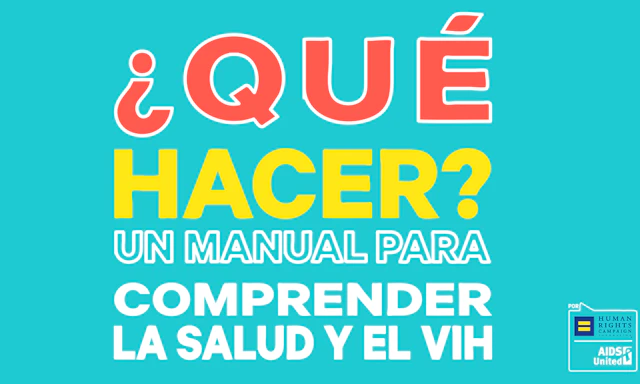
Beyond the Stereotypes: A Deep Dive Into Sex Work

Sex work. We all see it across tv, in the news, or maybe even on platforms like OnlyFans, but the diverse experiences of those involved in this profession are deeper and more comprehensive than you may know. Dispelling misconceptions, challenging stigmas, and promoting a perspective that recognizes the agency, rights, and well-being of sex workers is how we can ensure that we have a more holistic approach to ending health care disparities.
Navigate The Page:
Sex Work as Survival - Criminalization - Ending HIV - Support
Spectrum of Sex Work

Sex work is the exchange of sexual services for money or something of value (erotic dancing, adult film actors, BDSM workers, etc.). Individuals engage in sex work for a variety of reasons, which could include choice, circumstance, and coercion.
Sex Work As Survival
Sex work is often part of a survival economy. When society makes access to health care, education, food, water, and shelter extremely inaccessible or unaffordable to many people and families across the country, biased political leaders strategically use those barriers and the gaps they create to target marginalized communities or any group they deem as an “other.”
The criminalization of sex work is rooted in stigmatization and a sex shaming culture. Society over-polices and shames sex work under the guise of ‘keeping the community safe,’ but all it ultimately does is punish and dehumanize sex workers while perpetuating the existing societal structures that may have coerced or placed people in a circumstance where sex work becomes survival. This practice threatens human rights for vulnerable communities, deprives them of access to essential social, economic, and health systems, and makes it that much harder to end epidemics such as HIV, mpox, and health care disparities.
In addition to the desperation someone may feel in this situation, imagine the added burden for those who are medically dependent, such as individuals who need gender-affirming services and/or whose health and life depends on their adherence to sexual health services such as HIV treatment.

The “Legal” Targeting of Poverty
Social Determinants of Health are disproportionately impacted by current policies and legislation against sex workers. The policies affect historically marginalized identities such as LGBTQ+ communities, and have especially targeted transgender folks.
These policies negate the survival economy sex workers are forced into, demonize and dehumanize them, and paint them not as people but “threats.”
Systemic Barriers that Sex Workers Face:
Legislation that encourages the policing and criminalization of sex work, such as criminalizing, loitering gives law enforcement a tool to harass and discriminate against communities.
Institutions such as police departments, state legislatures, and corporate businesses, prioritize funding towards surveillance technologies that are designed specifically to increase the targeting of sex workers. This redirects public blame onto sex workers and diverts attention from the actual systemic problems that drove them there.
Incarcerated, sex workers have a hard time gaining job and educational opportunities. It can also further debt, or even cause loss of life, especially during imprisonment. Ultimately, incarceration creates a cycle where sex workers lose too much access and opportunity to move from sex work to other careers and educational paths.
Sex workers often operate in unsafe locations to avoid surveillance, debt, incarceration, and other forms of punishment -- increasing the risk of physical harm, hate crimes or even fatal assault.
Public and private entities are legally allowed to deny human rights and health care to people who are incarcerated, which negatively impacts their quality of life.
Fearing punishment and mockery, sex workers don’t always feel comfortable coming forward with their stories of abuse or seeking legal justice when attacked.
Shame & Stigma Prevents Ending the HIV Epidemic
Institutional punishment such as incarceration, and discriminatory policies in health care interfere with attempts to solve current health issues—such as the global HIV epidemic and the transmission of STD’s and STI’s across the country—and cause economic hardship and worsened access to health care. This hurts the ability for non-profits and health focused organizations to provide care towards ending the epidemic and dealing with public health crises, which worsens health outcomes for society as a whole.

The simple fact is that we can’t end HIV without providing support to both sex workers and their sexual partners, and the key to that is removing stigma and providing social aid. The prevalence of HIV in sex workers is 12x that of the average population. Our international goal of ending the HIV epidemic involves taking care of sex workers as an important factor in finding success. As Fannie Lou Hamer once said, “nobody’s free until everybody’s free.”
How You Can Support
Focusing on force, punishment, sex shaming, and excommunication from society instead of on solutions only contributes to the system of poverty and the dehumanization and fatal dangers that many sex workers face—especially, transgender women of color.
HRC supports decriminalization legislation and the push for decriminalization of sex work across the United States. Decriminalizing sex work would allow those engaged to live without stigma, social exclusion, and fear of violence or fear of seeking justice. Removing surveillance, prosecution, and stigma from sex work would be recognizing sex work as work, and would enable society to protect sex workers and help them navigate workplace safety and health concerns. It would also open their access to additional opportunities to improve their well-being
Below are a list of organizations that help provide life-saving resources and support to sex workers. Our partners may also be a good resource to find local advocacy opportunities in your area.
Urban Justice Center: https://swp.urbanjustice.org/
St. James Infirmary: https://www.stjamesinfirmary.org/
Asian and Migrant Sex Workers and Allies: https://www.redcanarysong.net/
Red Umbrella Fund: Sex Workers Rights: https://www.redumbrellafund.org/
Sex Workers Outreach Project USA: https://swopusa.org/
HIPS: https://www.hips.org/
Liberating LGBTQ+ People: https://www.blackandpink.org/
Read More About STAR: http://nswp.org/timeline/street-transvestite-action-revolutionaries-found-star-house
Decriminalize Sex Work (2020): DECRIMINALIZING SURVIVAL: POLICY PLATFORM AND POLLING ON THE DECRIMINALIZATION OF SEX WORK
Decriminalize Sex Work (DSW), National Nonprofit: https://decriminalizesex.work/why-decriminalization/
The Stroll (2023) - Documentary on HBO detailing the experiences of trans women who were sex workers in Lower Manhattan in the 90s
Learn & Live into Sexual Health:
Embrace Your Sexuality
We're building a generation free of HIV and stigma. Embrace sex positivity with My Body, My Health campaign. Are you in?
- Topics:
- Sexual Health
- HIV & Health Equity
- Allies
Love Conquers Hate


